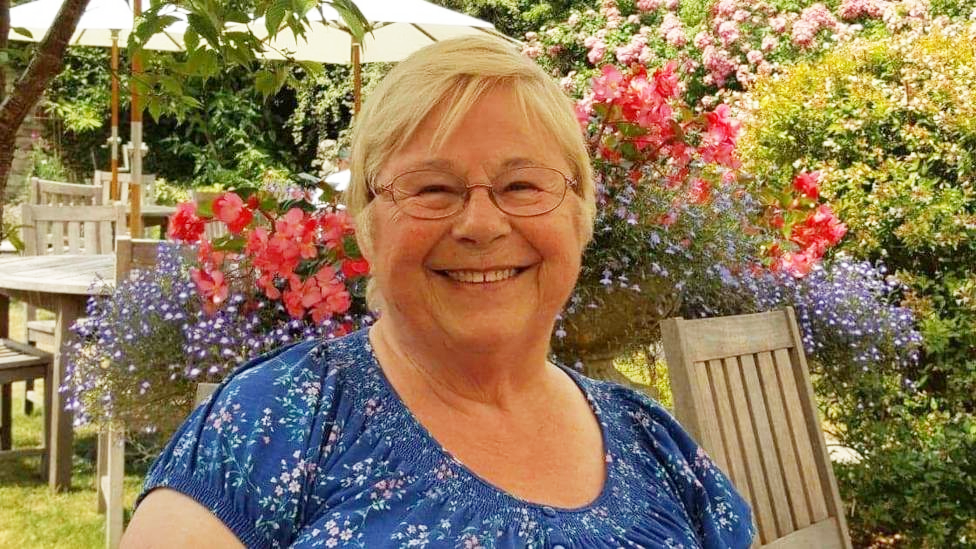Woman died after private hip operation - inquest

Gwynneth Exall, 79, died a day after a hip replacement at Nuffield Health Vale Hospital
- Published
A 79-year-old who suffered complications after a hip operation at a private hospital "would not have died" when she did had she not had surgery, an inquest has heard.
Gwynneth Exall, from Swansea, died of cardiac arrest one day after a hip replacement at the Nuffield Health Vale Hospital on 28 April 2022.
She sought private treatment to avoid having to wait for an operation on the NHS.
Her son David told the hearing in Pontypridd he believed her death "could have been avoided" had there been swifter action and staff "did not appear to know what was happening" as her condition deteriorated.
Widow calls for greater private care transparency
- Published13 February 2024
Error saw cancer patient go year without check-up
- Published26 January 2024
Boy's sepsis death after worry dismissed - inquest
- Published20 May 2024
In a statement, Mr Exall said paramedics shouted at staff in the private hospital in Pontyclun, Rhondda Cynon Taf, as they were "frustrated at their inaction".
He said one paramedic told him they had "significant concerns" about his mother’s care and would report it.
"I felt the doctors had given up on my mother," he added.
After attempts to raise Ms Exall's low blood pressure did not work at the private hospital, she went into cardiac arrest and was transferred to Cardiff's University Hospital of Wales where she died.
Pathologist Prof Richard Attanoos, who carried out the post-mortem examination, concluded Ms Exall "would not have died when she died had she not had surgery".
The inquest heard Ms Exall previously had cardiology treatment, but an assessment concluded she was fit for surgery.
Dr Michael Cronin, who carried out the surgery, said the operation was "low risk" and he had "no concerns" when he saw her later in the day.
The morning after surgery, Ms Exall's blood pressure dropped and an early warning score (EWS) - which determines the degree of a patient's illness - indicated she was likely to deteriorate rapidly.
But some doctors told the inquest they were unaware of the score and would have acted differently had they known.
Anaesthetist for the operation, Dr Madhwapathi Sudhaka said while "everything was done by the book" during surgery, he would have called 999 at the point of the EWS score, abut six hours before the situation was eventually escalated.
Dr Subramaniam Balachandran, the anaesthetist on the day Ms Exall died, told the inquest her symptoms were not pointing towards cardiac arrest but the private hospital was "not equipped to deal with acute deteriorations".
The inquest continues.